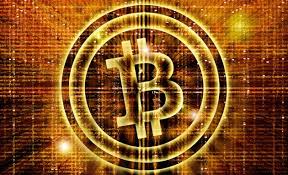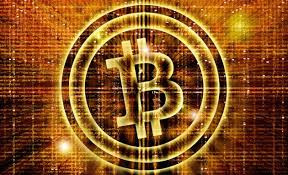
Shaking up the way payments are managed every time a light switch is flipped, bitcoin technology is starting to seep into the electricity business.
As a replacement for slower administrative systems that require constant human input and multiple spreadsheets, researchers and utilities, from New York to Vienna, are adapting the cloud-based ledger system used to track bitcoins. In a secure online listing available to anyone anywhere with access, blockchain, automatically records individual actions within a system, formats them, and stores the results, once the database is set up.
A century-old arrangement that monopolized both supply and distribution is now seeing a shift. Now, despite being short and sometimes unpredictable intervals that require transaction systems to be more nimble and decentralized, independent wind- and solar-farms are feeding into power grids. And block chain technology is being looked up to, to do just that by utilities including RWE AG in Germany and Fortum OYJ in Finland.
“There’s a change in the business model on the way, and they’re trying to figure out how to participate in this new world of distributed energy,” said Lawrence Orsini, the founder of New York-based blockchain developer LO3 Energy.
With requests to consult on how they could modify the way they make transactions, Orsini said his company has been approached by 26 utilities. Utilities want to track the use of new products from rooftop solar panels to electric-car charging, in addition to coping with increased volumes of renewable power.
In industries ranging from finance and insurance to car leasing and music streaming, blockchain has already secured a beachhead. With firms such as JPMorgan Chase & Co., Barclays Plc and Wells Fargo & Co. researching how to use it for trading. Energy is next on the horizon, it’s turned into a craze on Wall Street.
“I see it as complimentary to renewable. The old system of a few big power plants and vertically-integrated utilities didn’t really need blockchain,” said Michael Liebreich, chairman of Bloomberg New Energy Finance.
On a platform where consumers can trade green energy independently of utilities, RWE has been testing blockchain for electric-vehicle charging in Germany.
“Our hypothesis is there will be a machine-to-machine economy in which machines carry out transactions among themselves. Decentralized internet technologies like blockchain will become the transaction layer for this,” said Carsten Stoecker, who heads blockchain research at RWE’s innovation hub.
A wide range of workers with expertise in energy, finance and information technology are being brought together by the creation of the space where those transactions can occur.
“It can be described as the exchange of goods versus money in real time. We have many of these transactions with our customers and internally in our company. Theoretically, these could all be put on a blockchain,” said Juliane Schulze, who oversees business development at Vattenfall AB, the Nordic region’s biggest utility.
Blockchain trials are being prepared already by some utilities. Claus Wattendrup, general manager of Vattenfall Europe Innovation GmbH said that a website that lets customers buy and sell electricity without going through the utility, powerpeers online platform is where he wants to test it.
(Source:www.bloomberg.com)
As a replacement for slower administrative systems that require constant human input and multiple spreadsheets, researchers and utilities, from New York to Vienna, are adapting the cloud-based ledger system used to track bitcoins. In a secure online listing available to anyone anywhere with access, blockchain, automatically records individual actions within a system, formats them, and stores the results, once the database is set up.
A century-old arrangement that monopolized both supply and distribution is now seeing a shift. Now, despite being short and sometimes unpredictable intervals that require transaction systems to be more nimble and decentralized, independent wind- and solar-farms are feeding into power grids. And block chain technology is being looked up to, to do just that by utilities including RWE AG in Germany and Fortum OYJ in Finland.
“There’s a change in the business model on the way, and they’re trying to figure out how to participate in this new world of distributed energy,” said Lawrence Orsini, the founder of New York-based blockchain developer LO3 Energy.
With requests to consult on how they could modify the way they make transactions, Orsini said his company has been approached by 26 utilities. Utilities want to track the use of new products from rooftop solar panels to electric-car charging, in addition to coping with increased volumes of renewable power.
In industries ranging from finance and insurance to car leasing and music streaming, blockchain has already secured a beachhead. With firms such as JPMorgan Chase & Co., Barclays Plc and Wells Fargo & Co. researching how to use it for trading. Energy is next on the horizon, it’s turned into a craze on Wall Street.
“I see it as complimentary to renewable. The old system of a few big power plants and vertically-integrated utilities didn’t really need blockchain,” said Michael Liebreich, chairman of Bloomberg New Energy Finance.
On a platform where consumers can trade green energy independently of utilities, RWE has been testing blockchain for electric-vehicle charging in Germany.
“Our hypothesis is there will be a machine-to-machine economy in which machines carry out transactions among themselves. Decentralized internet technologies like blockchain will become the transaction layer for this,” said Carsten Stoecker, who heads blockchain research at RWE’s innovation hub.
A wide range of workers with expertise in energy, finance and information technology are being brought together by the creation of the space where those transactions can occur.
“It can be described as the exchange of goods versus money in real time. We have many of these transactions with our customers and internally in our company. Theoretically, these could all be put on a blockchain,” said Juliane Schulze, who oversees business development at Vattenfall AB, the Nordic region’s biggest utility.
Blockchain trials are being prepared already by some utilities. Claus Wattendrup, general manager of Vattenfall Europe Innovation GmbH said that a website that lets customers buy and sell electricity without going through the utility, powerpeers online platform is where he wants to test it.
(Source:www.bloomberg.com)





